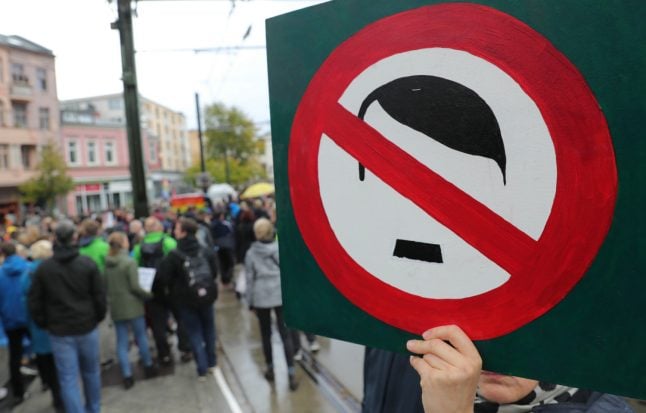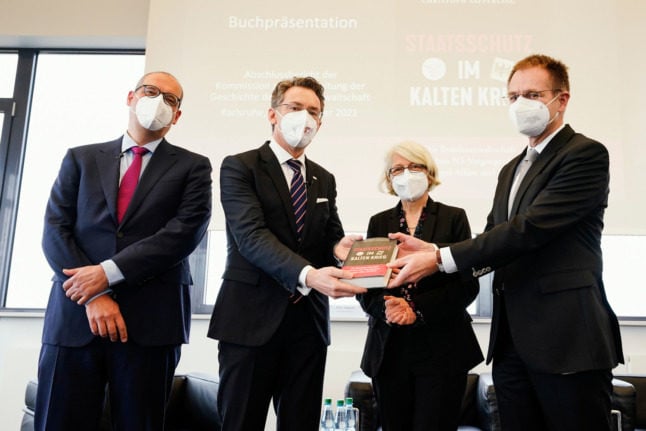The controversial law in question is known innocuously as the Federal German War Victims' Assistance Act, or the “Bundesversorgungsgesetz”, but tabloid-style Bild daily calls it “Hitler's pensions”.
The debate surrounding the law exploded again on February 20th when the
Belgian parliament voted on a resolution calling for the end of such payments to 18 people in the country.
SEE ALSO: Germany making disputed Nazi war payments to over 2,000 people
The outcry was the latest surrounding the state payments, which over the
decades have been believed to have benefited not just Nazi collaborators but even Waffen SS soldiers.
Today, Germany doles out a total of €787,740 every month to 2,033 people under the little known law that came into force in 1950, labour ministry data showed.
The law defines “war victims” as individuals who suffered health problems
from military or related service or internment during World War II.
They can “be former Wehrmacht (regular army) soldiers as well as civilian
war victims, for example those injured in a bomb blast or shell bombardment”, a ministry spokesman told AFP.
The spokesman stressed however that the funds are not payments for service in the Wehrmacht or in the Waffen SS.
Anyone convicted of war crimes is ineligible to receive the payments.
Nonetheless, critics have repeatedly warned over the decades that some of
the pensions have indeed gone to individuals who should have been excluded.
Money for SS veterans
A first uproar over the fund erupted as early as 1955 when news weekly Der Spiegel reported that among the beneficiaries was Lina Heydrich, widow of Reinhard Heydrich, one of the main architects of the Holocaust.
In the 1990s, a report by public broadcaster ARD found that more than 100
SS veterans in Latvia were receiving regular payments.
Finally, in 1998, an amendment was passed that allowed Germany to reject those who committed crimes against humanity during the Nazi era.
SEE ALSO: Lawmakers call for end of pension payments to Nazi collaborators
But that change only affected beneficiaries who applied for the payments
after 1997.
As a result of the reform, 99 individuals were stripped of their payments.
That is however just a small percentage of the more than 70,000 names which the Nazi-hunting Simon Wiesenthal Center considered suspicious, according to a list it handed to German authorities years ago.
In a joint study published in November 2016, the labour ministry and the
Simon Wiesenthal Center noted the big discrepancy in the numbers.
They also acknowledged that, among other shortcomings, there was a lack of material and personnel resources to thoroughly investigate beneficiaries'
backgrounds.
The labour ministry says it does not have a definitive figure today of how
many beneficiaries there have been since 1950.
It adds that because of data protection rules it cannot reveal the identities or profiles of the recipients.
The country with the most individuals drawing the funds today is Poland
with 573 beneficiaries.
The German embassy in Warsaw insisted that “nobody who has been convicted of a crime or a war crime would be able to receive this money”.
Other European countries with significant numbers of beneficiaries include
Slovenia with 184, Austria with 101 and Croatia with 71.
In the Americas, 250 beneficiaries live in the United States and 121 in Canada.
With the disputed payments now back in the spotlight, Nazi hunter Serge
Klarsfeld voiced shock that “democratic Germany should show itsrecognition for those who fought in the Nazi army”.



 Please whitelist us to continue reading.
Please whitelist us to continue reading.
Member comments